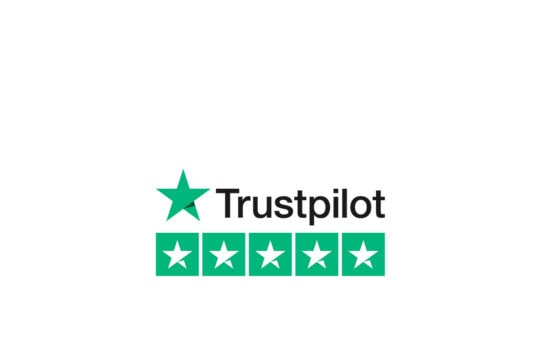Antimalarials: Malaria Prevention
We can provide up to date advice and recommendations for the malaria risk at your destination, as well as for your individual circumstances. The risk is not always straightforward – it may vary in different parts of the same country and can change according to altitude or time of year, and not all medication is suitable for every traveller and every trip. Sometimes the risk may be present but at an extremely low level, making decisions about medication more complicated.
Malaria is a preventable and treatable tropical disease which is spread by mosquitoes. Each year there are more than 200 million new cases of malaria worldwide. In Western countries, nearly all malaria cases result from travel to malarial destinations, and each year, deaths occur that could have been prevented. That is why it’s important to be prepared before you visit an area at risk of malaria.
Malaria is prevented by taking antimalarial medication, also known as malaria tablets. They suppress development of the malaria parasite, keeping you healthy whilst you travel and on your return.
If you intend to visit malarial regions, ensure that you take the antimalarial medication with you for the whole duration of your trip, exactly as prescribed. We can help you find the antimalarial medication you need to take with you.
You should also use careful precautions to reduce numbers of mosquito bites. Malaria mosquitoes tend to bite at dusk and during the night, so you should use mosquito repellent, cover up, and consider using a mosquito killer and/or a mosquito bed net at night. Ask us for more information about bite prevention and suitable precautions.
How can I prevent Malaria?
When visiting an area with risk of malaria, anti-malarial medication may be required.
The type of medication given will depend on where you are travelling and your medical history. We will help you find the anti-malarial medication that suits you best. We always discuss the risks and benefits in detail at your appointment.
You should also use insect repellent and take careful steps to reduce numbers of insect bites – please ask us for more information when you come and see us.
What are antimalarials?
Antimalarials are oral tablets taken to help prevent malaria, they offer over 90% protection, dramatically reducing your risk of the disease.
There are a number of different types of malaria medication available, and our specialist travel nurses will help determine the most suitable option for you.
Who should use antimalarials?
Adults and children travelling to countries where Malaria is considered a risk should always use antimalarial medication.
Antimalarials can reduce your risk of catching malaria by more than 90% making your travels much safer. It is important to always use them in conjunction with bite prevention measures.
What is Malaria?
Malaria is a serious tropical disease spread by mosquitoes.
The malaria parasite is spread by the bite of the female mosquito only. It can be fatal if it’s not diagnosed and treated quickly. Symptoms are often delayed and may not appear until after you return home. A fever following travel to a malarial area should always be investigated urgently to rule out the possibility of malaria, since rapid deterioration can occur.
What are the symptoms of malaria?
The most common malaria symptoms are:
- Fever – 38ºC or over (often intermittent)
- Aching muscles and joints
- A headache
- Chills (sweating and shivering)
- Abdominal pains and diarrhoea
- Tiredness and fatigue
- Jaundice (yellowing of the skin & whites of eyes)
Not all of these symptoms may be present, and symptoms may be delayed (in some cases for up to a year) after your return home – obscuring the link to your travels. Always seek prompt medical advice if you are unwell.
Malaria is easily misdiagnosed as flu, especially at times of year when flu-like symptoms are common. Fever, even weeks after returning from the tropics, should always be treated as an emergency. Call us on +44 20 7353 5678 and we can advise you.
Why should I keep taking antimalarials once I’ve returned home?
Completing the course is vital for malaria prevention.
Antimalarials do not prevent you from being infected with the malaria parasite, but they suppress the infection by killing the parasite either in the liver, or as they are leaving the liver to enter the bloodstream. Therefore if you have been infected with malaria during your travels, you may still have parasites within your body. Continuing the course of treatment after you return ensures that those parasites do not get a chance to multiply and cause you potentially severe illness.
FAQS
Malaria is a serious and sometimes life-threatening tropical disease. Travellers from non-malarial parts of the world have no naturally-acquired immunity so are vulnerable to severe infection, which can be fatal without prompt treatment. It is important to seek urgent medical help if you think you have malaria.
Standby emergency treatment (SBET) can be a good way of combating the malaria risk for some types of travel. You can discuss the advantages and disadvantages in greater depth with your travel nurse during a travel consultation. This is usually only recommended when travelling to areas that are remote and with little or no medical facilities close-by.
If you think you may have malaria, you should seek medical attention. They will be able to diagnose malaria with a blood test and if it comes back as positive they can begin treatment. It is important not to delay medical attention as your health could deteriorate rapidly.
Yes, there are quite a few different options to consider. We’ll explain the options and help you choose the most suitable one for your destination and circumstances.







